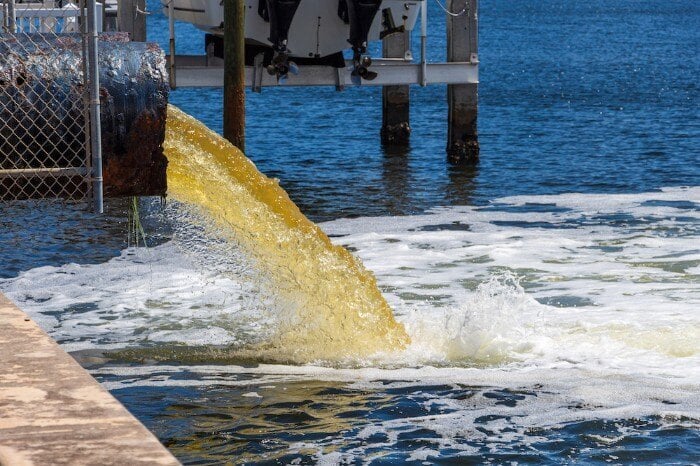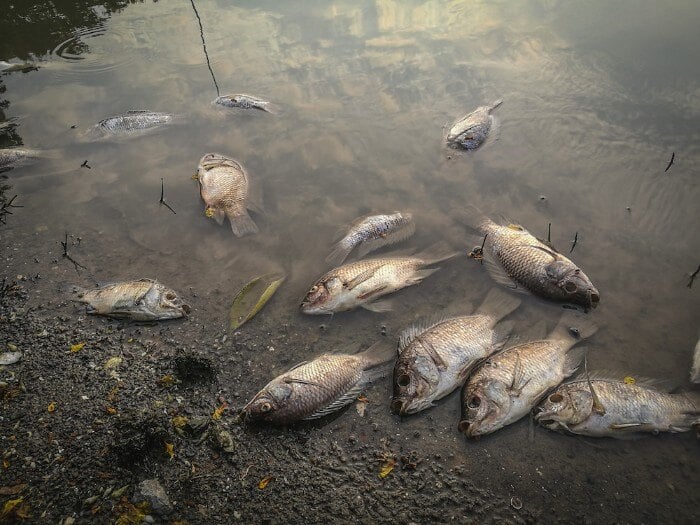In our everyday lives, we often take for granted the infrastructure that ensures our communities function smoothly. One crucial system we don't often think about is our sewage water system, like public drainage and home septic tanks. However, when this system fails or becomes contaminated, it can pose serious health risks and negatively affect surrounding ecosystems. In this blog, we will explore the dangers of sewage contamination and explain why it demands our attention.
The Dangers of Sewage Contamination
Health Risks
Raw sewage, typically a combination of human waste and industrial debris, contains a multitude of harmful microorganisms and pathogens, including bacteria, viruses, and parasites. This concoction can pose significant risks to an individual's health upon exposure or ingestion. When these contaminants find their way into our water sources, they can lead to diseases and adverse health effects, some of which can be severe and even life-threatening.
Waterborne diseases are a major concern associated with wastewater contamination. Harmful microorganisms in sewer water can pollute drinking water supplies and recreational bodies of water. They can even come into contact with food, leading to the transmission of illnesses such as cholera, typhoid fever, hepatitis, E-coli, salmonella, and the stomach flu. Symptoms such as loose or watery stools, vomiting, high fever, stomach pains, dehydration, and in some cases, organ damage like kidney failure can appear. In extreme cases, when left untreated, they can result in death.
Environmental Impact
Wastewater contamination not only endangers human health but also threatens the surrounding plant and animal life, disrupting the delicate balance of ecosystems. When untreated wastewater enters rivers, lakes, or oceans, it introduces a range of pollutants and contaminants that can devastate aquatic life.
Another sewage contamination concern is potential exposure to chemical elements, such as nitrogen and phosphorus. These chemicals act as fertilizers in bodies of water, promoting algae growth. When there is a high concentration of algae, they form dense blooms known as harmful algal blooms (HABs). HABs can have detrimental effects on aquatic ecosystems by depleting oxygen levels in the water. As the algae die and decompose, bacteria break them down, consuming oxygen in the process. The lack of oxygen can suffocate fish and other marine organisms, leading to mass die-offs and disruptions in the food chain.

Wastewater contamination can also have far-reaching effects beyond rivers, streams, and lakes. When sewage is improperly treated or discharged, it can contaminate soil, posing risks to agricultural productivity and plants. The presence of pathogens and chemicals in sewage can affect the health of crops, leading to reduced yields or even the contamination of food sources. Moreover, the runoff from contaminated soil can enter groundwater sources, further exacerbating the possibility of contamination and compromising drinking water supplies.
Contaminated Drinking Water
Sewage contamination can pose a severe risk to our clean drinking water sources. Treatment plants exist to combat the chances of contaminated water reaching populations; however, there is still a chance of us coming into contact with it despite such cautious measures. Drinking contaminated water can result in a range of health issues, particularly those related to gastrointestinal problems. Pathogens in sewage, such as bacteria, viruses, and parasites, can cause symptoms such as diarrhea, vomiting, abdominal cramps, and nausea. In addition to acute gastrointestinal symptoms, exposure to contaminated water can lead to skin infections, respiratory issues, eye irritations, and the development of harmful illnesses like salmonella and hepatitis.
The Spread of Antibiotic Resistance
The presence of antibiotics and other pharmaceuticals in sewage can contribute to the development of antibiotic-resistant bacteria. When sewage enters the environment, it introduces bacteria to low levels of antibiotics, which can fuel the evolution of resistant strains. These antibiotic-resistant bacteria pose a significant challenge to public health, making infections harder to treat and increasing the risk of widespread outbreaks. As antibiotic resistance rises globally, it amplifies the severity of illnesses and limits options for cures.

Economic Burden
Besides the health and environmental consequences, sewage contamination also strains communities and people financially. The costs associated with cleaning up contaminated water sources, repairing exposed infrastructure, treating infections, and implementing preventive measures can be substantial. Additionally, the negative impact on tourism, recreational activities, and local businesses in areas affected by wastewater contamination can be long-lasting.
What to Do if You're Exposed to Wastewater
If you find your septic tank leaking or signs of wastewater contamination in your house, contact a professional to survey the damage as soon as possible. If you have come into contact with wastewater and begin to exhibit symptoms like vomiting, an upset stomach, or watery diarrhea, please see your primary care physician as soon as possible.
Wastewater contamination hazards cannot be ignored. It threatens the well-being of individuals, the health of ecosystems, and the sustainability of our communities. Governments, municipalities, and individuals must invest in robust sewage treatment systems, effective monitoring, and preventive measures to mitigate the risks. Public awareness and education are vital in promoting responsible waste disposal and fostering a culture of environmental safety. Only through collective action can we safeguard our health, protect the environment, and ensure a safer future for generations to come.

Call PuroClean for All Your Property Damage Restoration Needs
Whether your property damage has been caused by sewage contamination or any other unfortunate event, you can rely on PuroClean for assistance. Our professional team understands the urgency and importance of restoring your home promptly and efficiently. Whether it's water damage, fire damage, mould remediation, or biohazard, our experienced technicians will work diligently to mitigate the damage and restore your property to its pre-loss condition. Trust our experts to handle all your property damage restoration needs. Call us today at (877) 261-7876.
